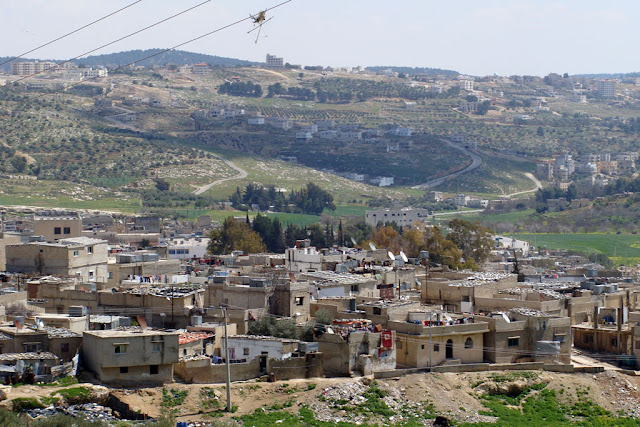JCPA: Stabilizing Israel-Hamas Relations in Gaza: Can It Be Achieved?
Israel and Hamas are seriously engaged in “regularizing” the situation in Gaza that will end the arson kites and the assaults on the border fence, and, in return, Israel will permit the rehabilitation of Gaza to alleviate the current humanitarian crisis in Gaza. Under discussion is a long-term ceasefire and the reconstruction of Gaza.
Both Israel and Hamas are interested in the positive conclusion of the efforts. That is why this time the chances of an agreement are fair. However, there are too many spoilers ready and willing to prevent its fulfillment.
Who Are the Spoilers and What Motivates Them?
First among the deal opponents is the Palestinian Authority in Ramallah. Sources in Ramallah insist that PA Chairman Mahmoud Abbas strongly objects to any engagement with Hamas. He wants Hamas to accept Ramallah’s rule in Gaza under Ramallah’s terms. There will be no return to “reconciliation talks” after today.
Also, when it comes to the governing structures that were central to the talks in the past – elections for president and the Palestinian Legislative Council (PLC) – Abbas is not interested in their revival. He is now basing his legitimacy on the established institutes of the Palestine Liberation Organization that are not democratic.
The reluctance to return to futile reconciliation talks goes together with Abbas’ concern over the separate contacts between Israel and Hamas. According to sources in Ramallah, the chances of an agreement between Israel and Hamas are much better than the reconciliation between Hamas and Fatah. If negotiations with Gaza leads to Gaza’s detachment from the West Bank, some Palestinians believe it will be the first step of the Trump deal and remove the refugee issue and Jerusalem off the negotiating table.
As far as Ramallah is concerned, there will be no blessing for the deal. It will also present a regional and international dilemma whether to grant the terror organization, Hamas, legitimacy.
Ron Prosor: UNIFIL has another chance to do its job
Good riddance. These words are the proper sendoff for Maj. Gen. Michael Beary, the commander of the United Nations Interim Force in Lebanon, who is about to complete his four-year term.Haaretz: Why Younger Saudis Won't Fund, Facilitate or Fight for a Palestinian State
Beary had one job: to prevent Hezbollah from spreading south of the Litani River. He consistently refused to enforce this prohibition, insisting that the terrorists moving south of the river were actually shepherds and hunters. Even during his farewell interviews, he could not utter the word Hezbollah.
U.S. envoy to the U.N. Nikki Haley has lambasted Beary for shirking his duty, calling him a disgrace to the organization and "blind." His conduct is also the reason why for the past year I led an international campaign to have him replaced. The U.N. has appointed Maj. Gen. Stefano Del Col in his stead. He is to enter the job on Tuesday.
I hope that when the outgoing and incoming commanders sat down to discuss the transition, the word Hezbollah came up. But since there is no way to trust Beary to do this most basic task, I would like to suggest several ways in which he could effectively do his job.
Maj. Gen. Del Col, I am not so naive as to think UNIFIL can single-handedly remove Hezbollah from southern Lebanon, and no one expects you to actively take on the organization. But here is what you can and should do:
Saudi Arabia and the United Arab Emirates are experiencing tremendous socio-political change that has accelerated a generation gap. The younger generations are characterized and led by Saudi Crown Prince Mohammed bin Salman (MBS) and his close ally Mohamed bin Zayed (MBZ), the crown prince of Abu Dhabi and primary driver of the UAE's foreign policy.
The younger Gulf generations are now unconvinced that moderation would follow the establishment of a Palestinian state. They believe it is more likely that a fully independent Palestinian state would itself be hostage to radical forces, and would in fact become an extreme source of instability in the region. MBS and MBZ believe that establishing a Palestinian state would mean handing Iran and Sunni political Islamists another Arab capital to control and influence.
Many Western policymakers still fantasize about the idea that the Gulf countries could provide money to birth and develop a Palestinian state - indeed, this is reportedly one of the founding principles of the Trump-Kushner peace plan. That is never going to happen, despite what they may promise publicly. Those who actively dictate policy in the Gulf are convinced that every dollar the Saudis give to the Palestinians means handing it to Iran.





































